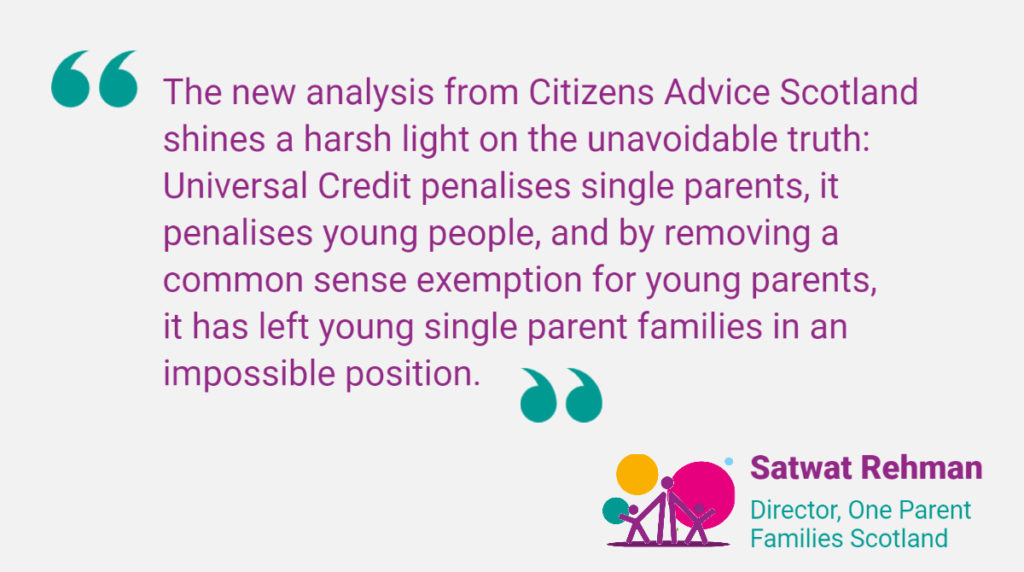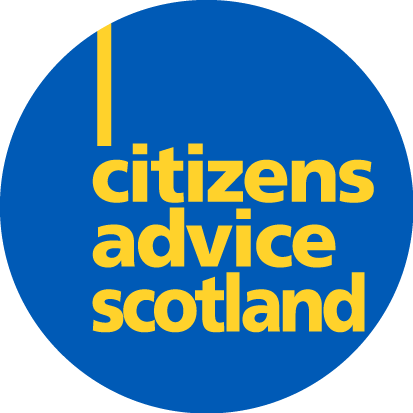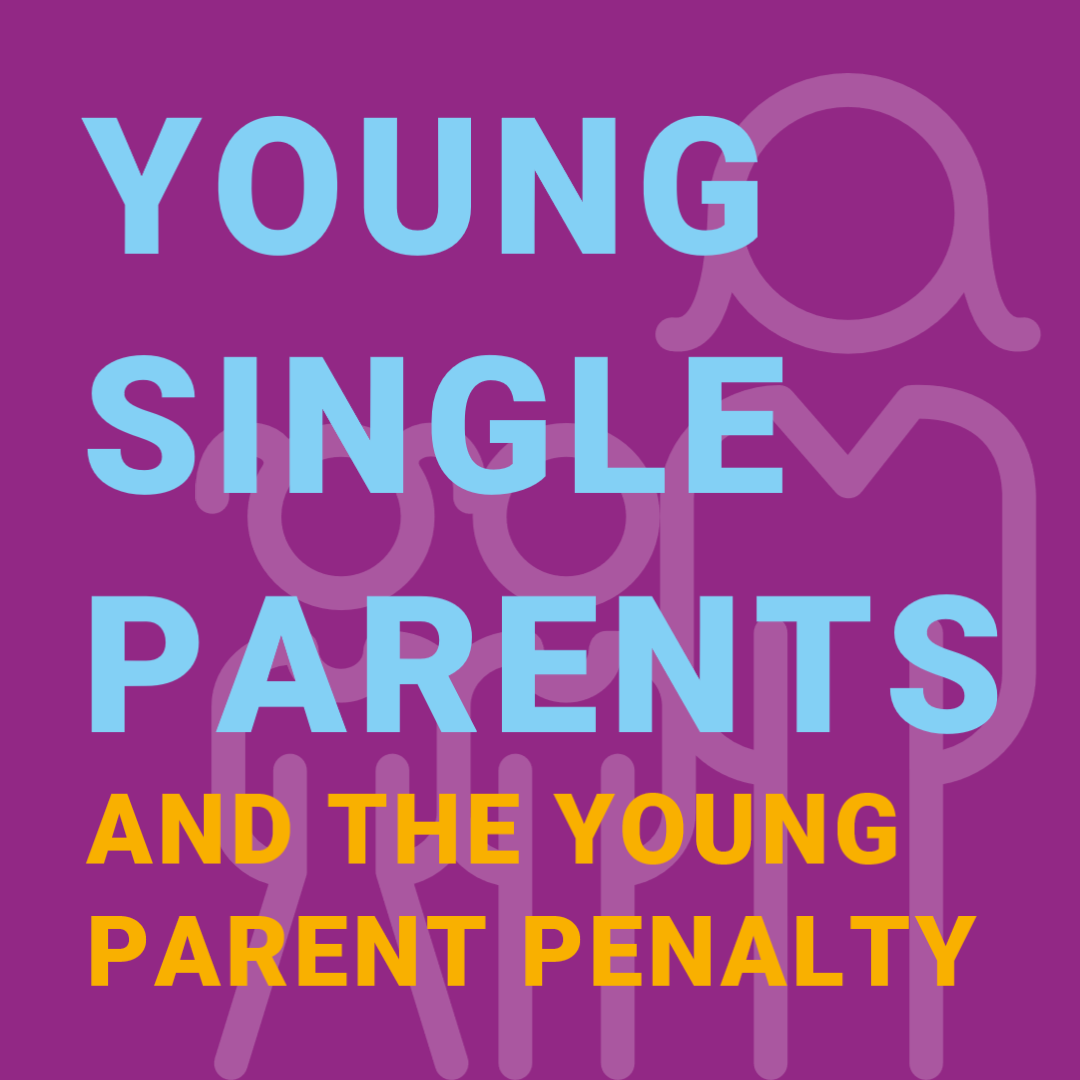OPFS reaction: young single parents will be among worst hit by removing Universal Credit uplift

10/02/2021
News
A new report from Citizens Advice Scotland (CAS) has found that young single people will be hardest hit by the removal of the £20 per week Universal Credit uplift this April.
One Parent Families Scotland is extremely concerned by the findings, which show that single parents under 25 will see their allowance for Universal Credit drop by 25%.
Single claimants over 25 will follow closely behind with the second largest drop of 20%.
Joint claimants under 25 will face a reduction of 17% and joint claimants over 25 will lose 14% compared with the increased pandemic rate.
Official statistics on poverty, wealth, debt and savings consistently find that single parent families are the worst off in Scotland, with 39% of children in single parent families living in poverty in 2019/20.
- Satwat Rehman, Chief Executive
Poverty in single parent families
See all our calls to action for the UK Government and Scottish Government, taken from the recommendations we contributed to the Scottish Government’s evidence review on poverty in single parent families in August.
Read a poem written by a single parent in Glasgow about life on social security, ‘Hanging by a Thread’.
See Public Health Scotland’s paper on ‘COVID-19 and lone parent households’.
Research from the Resolution Foundation in 2019 found that young single parents would be most likely to lose out in the transition to Universal Credit from legacy benefits, with over two-thirds expected to end up with less money.
This is because there used to be an exemption to the lower rate of benefits for under 25s if the claimant was a single parent, in recognition of the costs of raising a child alone, but this was removed under the new system of Universal Credit. As a result, the monthly standard allowance for young single parents is over 20% lower when they move to Universal Credit.
The new findings from CAS indicate that young single parents – the vast majority of whom are women – are set to lose out most again in April, in the midst of a pandemic and economic downturn.
One Parent Families Scotland CEO Satwat Rehman commented on the findings:
“The new analysis from Citizens Advice Scotland shines a harsh light on the unavoidable truth: Universal Credit penalises single parents, it penalises young people, and by removing a common sense exemption for young parents, it has left young single parent families in an impossible position.
“Young single parent families have seen their income drop dramatically in recent years with the move to Universal Credit, due to a political decision to remove support from younger parents. The uplift in response to the Covid-19 pandemic demonstrates that different decisions are possible.
“The UK Government can decide to keep the £20 per week increase for all Universal Credit claimants and extend it to legacy benefits. It can decide to remove the inequality introduced under the new system for single parents under 25, and send a message that all children deserve the same support, regardless of their parent’s age.
“These decisions can lift children and families out of poverty. This is the simple choice which government ministers are faced with in the coming weeks.”
Analysis from CAS also finds that there has been a real-terms drop in the value of Universal Credit rates over time. If UC was valued in line with the rise in living costs the standard allowance should be 11.5% higher than it will be if the uplift is cut.
In real terms, this would mean the standard allowance for a young single claimant would be £290.72, but from April the real figure will be just £257.33.

Citizens Advice Scotland briefing
Read the briefing from CAS about the real-terms drop in Universal Credit and the impacts of removing the £20 uplift.
Download CAS briefing

Young single parents briefing
Read our briefing on how young single parents have been affected by the move to Universal Credit and by the £20 uplift, including new statistics from Citizens Advice Scotland.
Download OPFS briefing